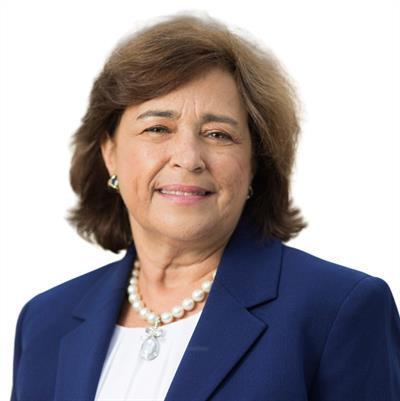-

Hear from Monica Toft, Academic Dean
Learn how Monica Toft, Academic Dean, is shaping the study of global affairs and diplomacy at Fletcher.
Hear from Prof. Toft -

Explore Fletcher academics in action
Fletcher Features offers insights, innovation, stories and expertise by scholars.
Get global insights -
Get application tips right from the source
Learn tips, tricks, and behind-the-scenes insights on applying to Fletcher from our admissions counselors.
Hear from Admissions -

Research that the world is talking about
Stay up to date on the latest research, innovation, and thought leadership from our newsroom.
Stay informed -
Meet Fletcherites and their stories
Get to know our vibrant community through news stories highlighting faculty, students, and alumni.
Meet Fletcherites -

Forge your future after Fletcher
Watch to see how Fletcher prepares global thinkers for success across industries.
See the impact -

Global insights and expertise, on demand.
Need a global affairs expert for a timely and insightful take? Fletcher faculty are available for media inquiries.
Get in Touch
A time for prayer, a time for peace
by Tara Sonenshine, Edward R. Murrow Professor of Practice in Public Diplomacy
The attack that took place on October 7th in Israel, with rockets fired from the Gaza Strip and incursions into homes, music festivals, and ordinary streets, is beyond human understanding.
Hostage-taking, hunting down, and killing civilians is not acceptable, not justifiable, and not humane under any circumstances. The scale of the kidnapping and killing of the elderly, women, and children defy religious text and international law. Blood is red regardless of politics.
International governments will now be on record as to how they officially respond to terrorism and where they stood when this tragedy unfolded.
Extremists can take lives anywhere and everywhere. No nation is immune.
Most governments expressed condolences, including Ukraine, itself at war. China, despite its disagreements with the U.S., came to a decent place on its statements about the attacks after some American pressure. Through a spokesperson, the Chinese foreign ministry condemned “all violence and attacks on civilians,” also calling for a ceasefire and to “restore peace.”
For those nations that are walking a fine line between inciting extremists at home and defending humanity overseas, neutral statements and calls for diplomacy are the only courses of action that are acceptable.
Jordan’s King Abdullah said there was a need for “urgent international action to avoid an escalation and prevent the region from the consequences of a new round of violence.”
Egyptian President Abdel Fattah el-Sisi warned Saturday of a “vicious cycle” of violence. Reports say that “el-Sisi received a call from French President Emmanuel Macron … and the two discussed ‘coordinating efforts to stop the escalation in the Gaza Strip between the Palestinian and Israeli sides.’”
Compare these efforts with those from Tehran.
Iran’s foreign ministry said the attacks on Israel “were an act of self-defense,” describing the killings as a “spontaneous movement of resistance groups” and a “natural reaction to the Zionists’ warmongering and provocative policies.”
With all due respect for differing ideologies, religious divides, historic grievances, and the endless blame game that defines conflict, this is a time for prayer and reflection, not rhetoric.
This piece was submitted for publication on October 19th, 2023.


